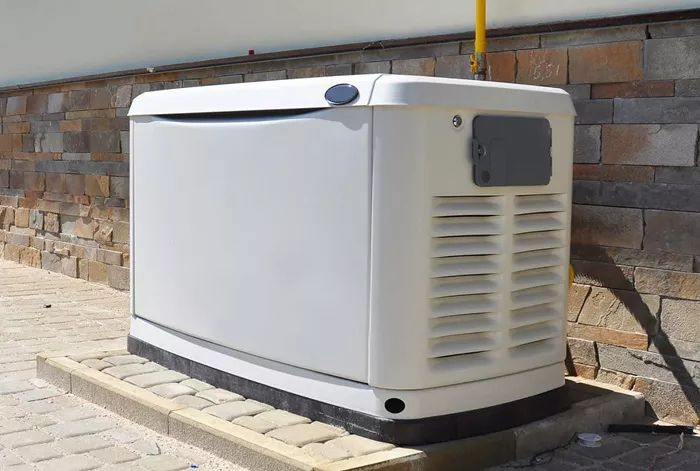In recent years, the demand for reliable backup power solutions has grown, driven by increasing frequency and severity of power outages. Whole home natural gas generators have emerged as a preferred choice for homeowners seeking uninterrupted power supply during emergencies. Unlike portable generators, which require manual setup and refueling, whole home natural gas generators are permanently installed and connected to the home’s natural gas supply. This seamless integration ensures continuous operation without the need for refueling, making them an ideal solution for prolonged outages.
Benefits of Using Natural Gas Generators
Natural gas generators offer several advantages over other types of backup power systems. Firstly, natural gas is typically more readily available than diesel or propane, with many homes already connected to a municipal natural gas supply. This ensures a constant fuel source during emergencies, eliminating the inconvenience of storing and refueling fuel tanks. Additionally, natural gas is cleaner burning compared to diesel or gasoline, resulting in lower emissions and reduced environmental impact. Maintenance requirements for natural gas generators are generally lower, as they operate more cleanly and efficiently over time compared to diesel engines.
Factors to Consider When Choosing a Whole Home Natural Gas Generator
Before investing in a whole home natural gas generator, homeowners should evaluate several key factors to ensure they select the most suitable model for their needs. Power output capacity is paramount, as it determines the number of appliances and devices that can be powered simultaneously during an outage. Generator size considerations include physical dimensions and installation requirements, ensuring adequate space and compliance with local building codes. Noise levels are another crucial factor, especially for residential settings, as quieter generators provide greater comfort during operation. Fuel efficiency determines ongoing operating costs, with more efficient models offering reduced fuel consumption per hour of operation. Finally, installation requirements vary depending on the generator’s size and electrical configuration, requiring professional installation to ensure safety and compliance.
Top Brands and Models on the Market
Several leading brands offer whole home natural gas generators tailored to different homeowner needs and preferences. Generac, known for its robust reliability and extensive product range, offers models such as the Generac Guardian Series, renowned for their high performance and advanced features like Mobile Link remote monitoring. Kohler, another trusted brand, provides the Kohler 20RESCL with Quiet Test technology for reduced noise levels during self-testing cycles. Briggs & Stratton’s Fortress Series combines durability with user-friendly controls, ideal for homeowners seeking ease of operation and maintenance. Each brand and model reviewed will highlight specifications, features, pros, and cons, aiding homeowners in selecting the best fit for their specific requirements.
Comparison of Natural Gas Generators vs. Other Types
Comparative analysis between natural gas generators and alternative fuel types, such as diesel or propane, reveals distinct advantages and considerations. Natural gas’s continuous supply from municipal lines offers unparalleled convenience compared to diesel or propane, which require storage and periodic refueling. Environmental impact favors natural gas generators due to cleaner combustion and lower emissions, aligning with modern sustainability initiatives. Maintenance costs for natural gas generators are generally lower due to cleaner fuel combustion, reducing the frequency of engine maintenance and repair. However, diesel generators excel in fuel efficiency and longevity, making them suitable for extended runtime applications where refueling is feasible.
Installation and Maintenance Tips
Proper installation and regular maintenance are crucial for ensuring the reliable performance and longevity of a whole home natural gas generator. Homeowners should select a suitable location for generator installation, considering factors such as proximity to natural gas lines, noise levels, and accessibility for servicing. Compliance with local building codes and regulations ensures safety and legal compliance, preventing potential hazards or operational interruptions. Routine maintenance tasks include periodic inspections, oil and filter changes, and testing of automatic transfer switches to verify seamless power transition during outages. Professional installation by certified technicians guarantees proper setup and operational reliability, providing peace of mind during emergencies.
Cost Considerations and Return on Investment (ROI)
Investing in a whole home natural gas generator involves upfront costs for equipment purchase, installation, and potentially additional expenses for site preparation or electrical upgrades. Ongoing operational costs include natural gas fuel consumption, periodic maintenance, and occasional repairs or part replacements. Despite initial investment, natural gas generators offer substantial savings compared to portable generators, which require frequent refueling and manual operation during outages. Return on investment (ROI) factors in potential savings from uninterrupted power supply, safeguarding against financial losses due to outage-related disruptions and preserving household comfort and safety.
Safety and Regulatory Compliance
Safety remains paramount when installing and operating a whole home natural gas generator. Proper ventilation is essential to prevent carbon monoxide buildup, ensuring adequate airflow and exhaust system functionality during generator operation. Carbon monoxide detectors should be installed in proximity to generator exhaust outlets and within living spaces to alert occupants of potential hazards. Compliance with local building codes and regulations ensures safe installation and operation, addressing requirements for electrical connections, fuel supply lines, and generator placement. Regular maintenance and inspection by qualified technicians mitigate safety risks and ensure continued compliance with evolving regulatory standards.
see also: What Size Whole Home Generator Do You Should Choose
Conclusion
Choosing the best whole home natural gas generator involves careful consideration of power requirements, fuel availability, environmental impact, and operational costs. By evaluating these factors and selecting a reputable brand and model tailored to specific household needs, homeowners can secure reliable backup power solutions for uninterrupted comfort and safety during emergencies. Professional installation and ongoing maintenance ensure optimal generator performance and compliance with safety standards, reinforcing the investment in safeguarding home and family against unforeseen power outages.
- the ultimate guide to home generators: power your home, secure your peace of mind
- unlocking the power of general generators: a comprehensive guide
- the hidden costs: uncovering the downsides of diesel generators

